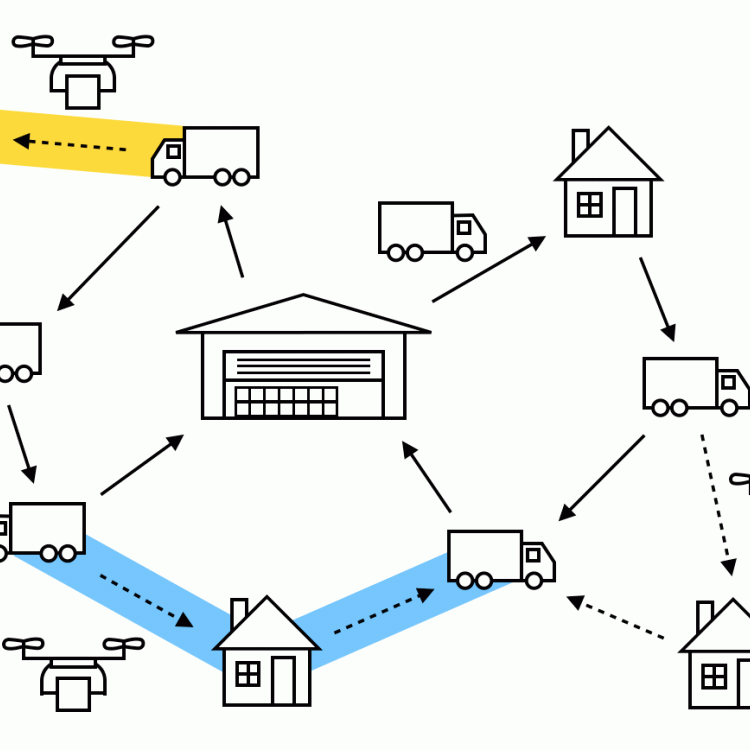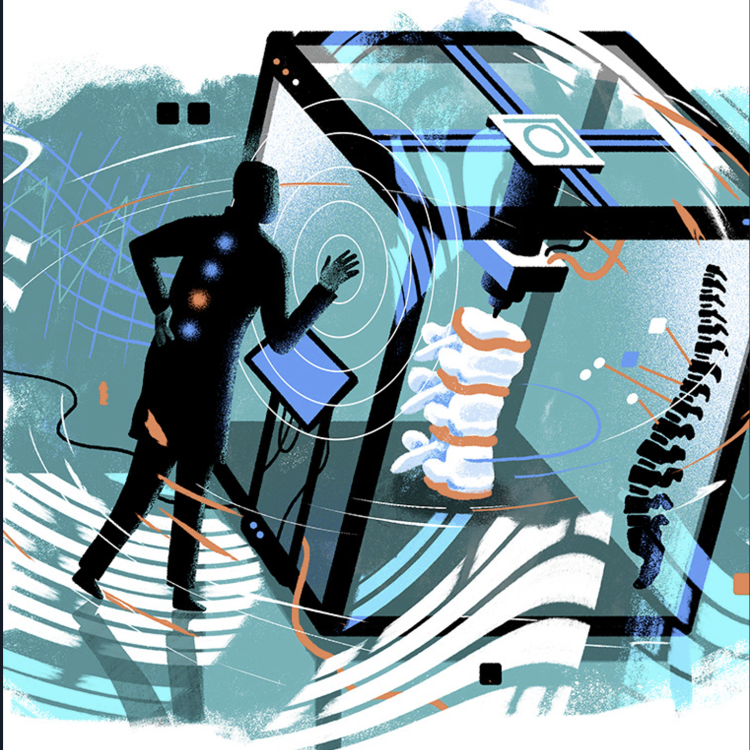Optimisation methods, such as mixed integer linear programming, have been very successful at decision-making for more than 50 years. Optimisation algorithms support basically every industry behind the scenes and the simplex algorithm is one of the top 10 most influential algorithms. Major success stories include rostering nurses in hospitals, managing chains of organ transplants, planning production levels for manufacturing, routing delivery trucks for transport, scheduling power stations and electricity grids, to name just a few.
Research projects in Information Technology
Displaying 51 - 60 of 117 projects.
Branch-and-Cut-and-Price Algorithms for Computing Cost-Effective and Time-Efficient Delivery Routes for Trucks and Drones
Transport and logistics businesses today use a large fleet of trucks and vans to deliver packages widely across a city. Deciding which package should be loaded on to which vehicle and deciding which package should be prioritised are surprisingly difficult computational tasks. State-of-the-art high-performance algorithms are used to calculate routes for the vehicles in order to minimise costs and maximise efficiency.
[Malaysia] - Integration of heterogeneous biomedical data for robust and interpretable prediction
Many machine learning (ML) approaches have been applied to biomedical data but without substantial applications due to the poor interpretability of models. Although ML approaches have shown promising results in building prediction models, they are typically data-centric, lack context, and work best for specific feature types. Interpretability is the ability of an ML model to identify the causal relationships among variables. It is crucial for uncovering new insights, justifying a model performance and ultimately building trust in users for further applications.
Creating a turnkey solution to classify, predict and simulate behaviour from videos of rodents
Rodent behavioural testing is the study of the neural mechanisms underlying emotions [1]. It is used in the study of almost all mental conditions, including PTSD [2], OCD [3] and autism [4]. For example, to measure anxiety, researchers may place a rodent in a large tub, record a top-down video and measure the time spent near the safety of walls [2]. These videos also contain rich information about behavioural patterns, but scoring this manually is time consuming.
Combating antimicrobial resistance through use of artificial intelligence and genomics
Antimicrobial resistance (AMR) is one of the most significant and immediate threats to health in Australia and globally. We are working on harnessing new technologies such as artificial intelligence and next-generation sequencing and to improve the diagnosis, treatment and prevention of AMR infections.
The specific aims of this project are:
1. Rapidly identify AMR and predict treatment responses through use of genomics and machine learning in a clinical context.
Active Learning for Language and Multimodal Applications
This PhD project aims to mitigate the data scarcity of new NLP and Multimodal applications by developing novel active learning algorithms. In this project, the student will leverage large foundation models, such as ChatGPT and GPT4, incorporating the cutting-edge techniques in the other areas, such as reinforcement learning, causality and GFlowNets, to devise novel active learning algorithms for NLP and multimodal applications.
Event Extraction and Neuro-Symbolic Reasoning for Law Enforcement and Legal Applications
In recent years, social media have become a common plattforms for criminals to stalk, intimidate, manipulate and abuse vulnerable citizens, such as women and youth. A recent survey of students in grades 6 to 9 found that the rates of electronic bullying for girls were between 16% and 19%, whereas the rates for boys were between 11% and 19%. 33.47% of sexually abused girls reported experiencing cyberbullying compared to 17.75% of nonsexually abused girls.
Medical AI Exploration with Machine Learning and Robotics
PhD Studentship Description:
Disentangled Representation Learning for Synthetic Data Generation and Privacy Protection
Synthetic data generation has drawn growing attention due to the lack of training data in many application domains. It is useful for privacy-concerned applications, e.g. digital health applications based on electronic medical records. It is also attractive for novel applications, e.g. multimodal applications in meta-verse, which have little data for training and evaluation. This project focuses on synthetic data generation for audio and the corresponding multimodal applications, such as mental health chatbots and digital assistants for negotiations.
Development of AI based Point of Care MRI
Portable point of care medical devices have revolutionised the way in which people receive medical treatment. It can bring timely and adequate care to people in need but also opens up the opportunity to address the healthcare inequality for the rural and remote.


